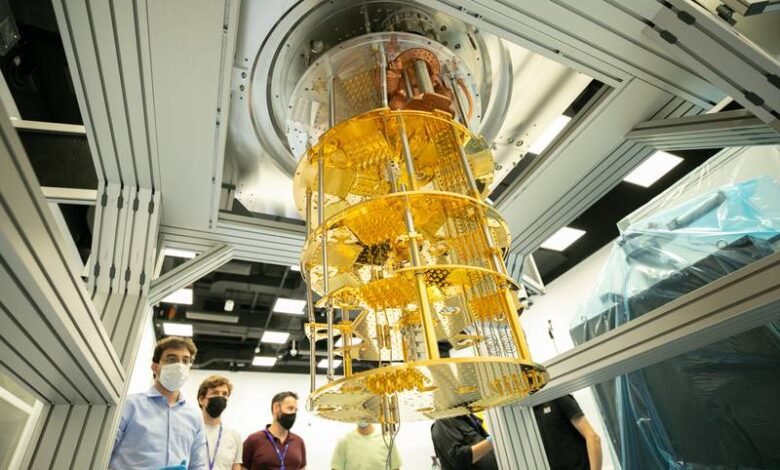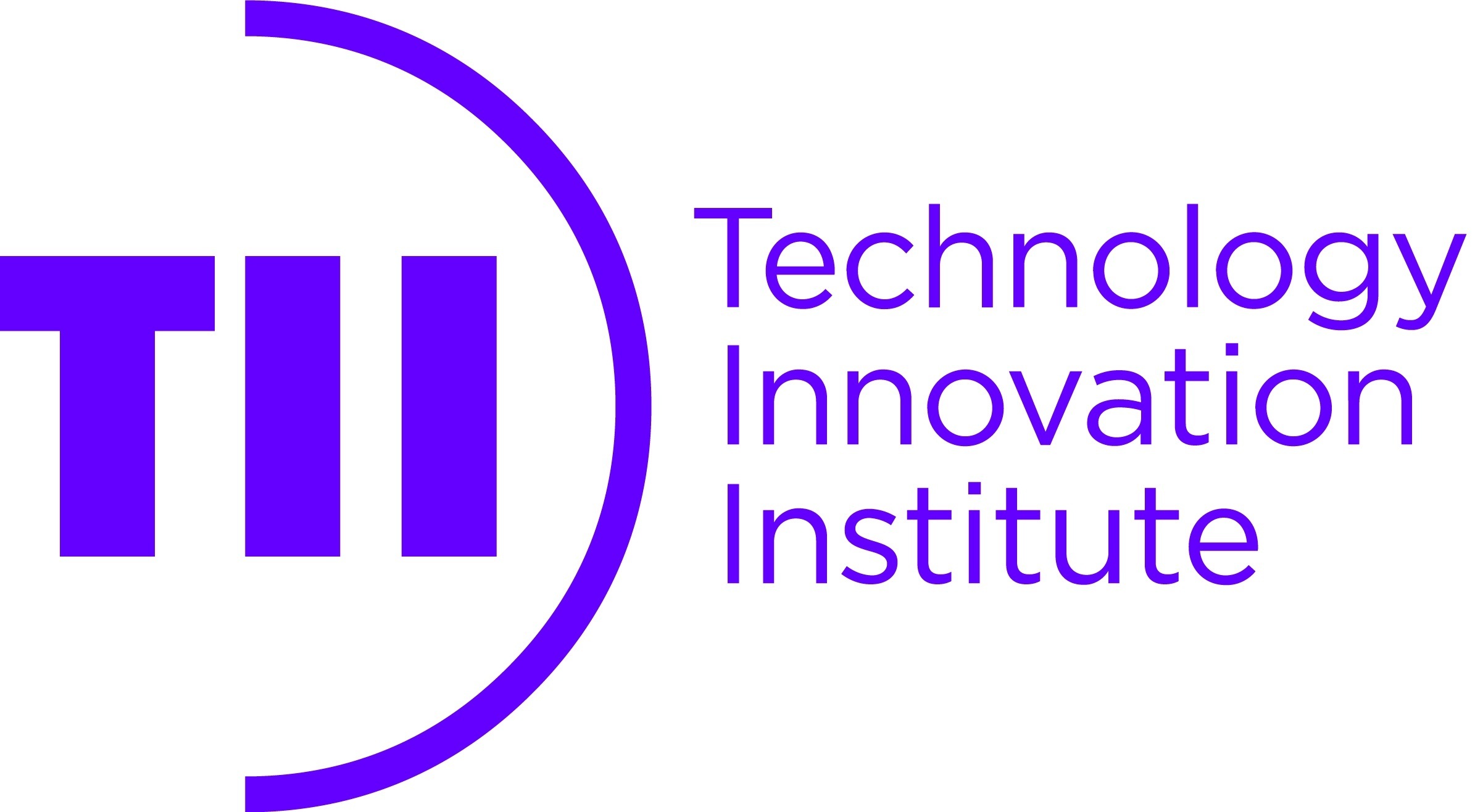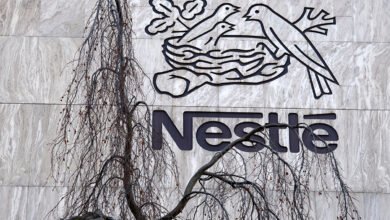
Abu Dhabi Scientists Build Middle East’s First Advanced Quantum Computer
Scientists building a next-gen machine in Abu Dhabi’s heart have achieved a remarkable breakthrough in quantum computing technology. The Technology Innovation Institute (TII) has showed the first-ever quantum solver that handles optimization problems with over 7000 variables using only 17 qubits. This breakthrough advances the practical use of quantum computers by solving large-scale combinatorial optimization challenges with minimal quantum resources.
TII Abu Dhabi leads global quantum computing research. The institute developed UAE’s first quantum computer and continues to meet its goals by driving state-of-the-art advances in this field. TII Abu Dhabi enhanced its capabilities through a mutually beneficial alliance with Quantinuum that provides access to high-fidelity quantum systems, including the advanced Helios platform. This collaboration strengthens TII’s quantum technologies ecosystem while supporting UAE’s broader vision. UAE strategically invests in quantum computing and its innovative applications to tackle some of the world’s most complex challenges, as it recognizes the technology’s immense computational power compared to conventional computers.
TII Abu Dhabi builds Middle East’s first advanced quantum computer
Image Source: Technology Innovation Institute (TII)
Technology Innovation Institute (TII) Abu Dhabi has reached a major milestone by revealing the Middle East’s first advanced quantum computer. This breakthrough marks a big step forward in the region’s quantum computing capabilities and puts the UAE at the forefront of this state-of-the-art field.
What makes this quantum computer ‘advanced’
TII’s quantum computer stands out because of its exceptional performance features and innovative design. This quantum computer uses a sophisticated error correction method that boosts computational accuracy by a lot. The system features a hybrid quantum-classical approach to tackle complex optimization problems with remarkable efficiency.
On top of that, the quantum computer uses advanced cryogenic systems that keep the superconducting qubits at near absolute zero temperatures to preserve quantum coherence. The perfect balance between extreme cold environments and precision control electronics allows longer computation times before decoherence affects results.
How many qubits and what kind of architecture is used
A 17-qubit processor based on superconducting circuit architecture powers TII’s quantum computer. The machine can solve problems with more than 7,000 variables despite having fewer qubits than some international systems.
The architecture uses a novel encoding scheme to maximize computational power with minimal quantum resources. TII researchers focused on qubit quality and innovative programming approaches instead of just increasing qubit counts. Their strategy proves that well-designed systems with fewer high-quality qubits can perform better than larger systems with less stable qubits for specific applications.
Where the system was developed and tested
TII’s Quantum Research Center in Abu Dhabi developed and tested the entire quantum computer. This advanced facility houses specialized equipment including dilution refrigerators, precision electronics, and custom-designed control systems needed to develop quantum hardware.
The research team put the system through rigorous validation tests to measure reliability and performance. Experts from multiple TII departments worked together, combining their knowledge of quantum physics, materials science, and computer engineering to solve numerous technical challenges.
The complete in-house development makes TII one of few global institutions that can handle everything in quantum computing – from hardware design and fabrication to algorithm development and application deployment.
Researchers solve large-scale optimization using only 17 qubits
Image Source: Nature
TII researchers have made a groundbreaking discovery by solving large-scale optimization problems with a small number of qubits. Their work stands as the first successful demonstration of a quantum solver that tackles an optimization problem with over 7000 variables using just 17 qubits. This achievement sets a new measure for quantum computers dealing with complex optimization challenges.
What is the Maximum Cut problem and why it matters
The research team’s quantum solver was tested on a challenging measure known as the Maximum Cut problem. This NP-complete problem finds a partition of a graph’s vertices into two distinct sets that maximizes the number of edges between them. Maximum Cut might seem abstract, but it has ground applications across many industries.
“Finding exact solutions to the Max-Cut problem would have practical applications in a wide range of situations,” explains researchers, “including supply chain management, machine scheduling, image recognition, quality control, fraud detection, patient diagnostics, and electric circuit design”. Network design and resource allocation are among other applications that make this problem central to many businesses’ daily computational challenges.
How the hybrid quantum-classical algorithm works
The quantum solver uses a hybrid quantum-classical algorithm that combines both computing approaches’ strengths. This hybrid method employs novel encoding techniques with classical processing power, unlike purely quantum solutions.
The approach utilizes quantum mechanics principles to explore solution spaces quickly and evaluates multiple potential solutions simultaneously. The team reduced computational overhead linked to quantum optimization by designing the algorithm to reduce common quantum computing challenges. The approach minimizes “barren plateaus” during model training – a frequent obstacle in quantum algorithm development.
How the encoding scheme reduces qubit requirements
The breakthrough shines through its novel encoding scheme that optimizes qubit efficiency. One qubit per variable is needed in traditional approaches, making large problems impossible on current quantum hardware. TII’s method utilizes qubit correlations to encode thousands of binary variables into fewer qubits.
“By introducing a scalable encoding method, we have shown that complex problems can be addressed even with the hardware constraints of today’s quantum devices,” explained Marco Sciorilli, lead author of the study and Associate Researcher at TII. The system maintains high solution quality despite fewer qubit requirements through this efficient encoding.
The results proved remarkable. The quantum solver achieved solution qualities matching state-of-the-art classical methods and sometimes performed better.
TII collaborates with global leaders to validate results

Image Source: HPCwire
A remarkable network of international partnerships made this quantum computing breakthrough possible. The Technology Innovation Institute arranged strategic collaborations with leading global institutions to verify and boost their quantum solver technology.
Role of NVIDIA, Caltech, and Los Alamos National Lab
Four distinguished organizations brought their unique expertise to develop the quantum solver. NVIDIA provided advanced computational capabilities, while Los Alamos National Laboratory contributed specialized quantum systems knowledge. Caltech’s innovative research methods went together with TII’s quantum engineering expertise. The team verified their results through tests on commercially available quantum devices.
How international collaboration accelerated development
TII created a research environment that combined theoretical insights and practical experiments by bringing together resources and knowledge from multiple institutions. This mutually beneficial partnership accelerated the research timeline and set new benchmarks for interdisciplinary work in quantum computing. The team solved complex challenges that no single institution could handle alone.
Quotes from TII and partner institutions
“This advancement demonstrates the critical importance of international collaboration in quantum science,” stated Dr. Leandro Aolita, Chief Researcher of TII’s Quantum Research Center. “It reflects our commitment to bridging theoretical research and practical applications, ensuring that Abu Dhabi continues to contribute to cutting-edge, global innovation”.
TII has now formed more partnerships, including a strategic agreement with Quantinuum to strengthen UAE’s quantum capabilities further.
Quantum computing applications expand across industries
Image Source: Appventurez
Quantum computing applications are making their way into vital sectors. These real-life implementations prove the technology’s value beyond research labs. TII’s breakthroughs illustrate how quantum solutions tackle complex challenges in major industries.
Use cases in energy, finance, and logistics
The UAE made quantum applications in energy optimization a priority since 2018. Dubai Electricity and Water Authority took the first step by launching a quantum computing training program with Microsoft. HSBC showed a quantum-enabled algorithmic trading system that improved bond trading price predictions by 34% compared to classical techniques. Supply chain management optimization problems are perfect targets for quantum computing. This technology could reshape route planning and resource allocation completely.
Why this breakthrough matters for real-life deployment
TII’s solver offers the quickest way to make quantum computing practical for businesses sooner than predicted. Knowing how to handle optimization problems with minimal qubits solves the main barrier to commercial adoption—limited hardware availability. Yes, it is significant that McKinsey estimates the quantum computing market could reach AED 356.18 billion by 2035. This projection highlights its growing commercial viability.
How this lines up with UAE’s tech innovation goals
Dr. Leandro Aolita explains that TII’s developments directly support “the UAE’s strategic vision… to transition from a commodity-based economy to a knowledge-based economy”. The institute acts as the applied research arm of Abu Dhabi’s Advanced Technology Research Council. This positions the country as a regional leader in this transformative field.
Abu Dhabi’s Technology Innovation Institute has created a breakthrough in quantum computing that changes the landscape in the Middle East. Their quantum solver proves that quality matters more than quantity. It solves optimization problems with over 7,000 variables by using just 17 qubits. This new encoding method challenges what we thought about quantum resource needs.
The institute built mutually beneficial alliances with global leaders like NVIDIA, Caltech, and Los Alamos National Laboratory. These partnerships proved it right that international teamwork speeds up progress in quantum technologies faster than any single organization could achieve alone.
Quantum computing’s benefits go beyond theory. The solutions work for energy optimization, financial systems, and supply chain management. TII’s quick approach makes quantum solutions available much sooner than predicted, which could change industries throughout the UAE and beyond.
This technological milestone has made Abu Dhabi one of the most important contributors to global quantum innovation. The achievement fits perfectly with UAE’s bigger plan to change from a commodity-based economy to a knowledge hub. This quantum computer’s influence reaches way beyond its technical capabilities and marks a decisive step toward technological independence and leadership in future computing.






